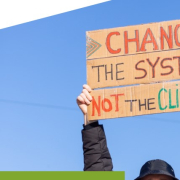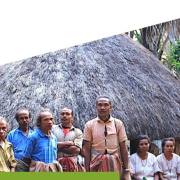Esports Diplomacy to Strengthen China-ASEAN Comprehensive Strategic Partnership: From Competition to Coalition
brief articleAs Gen-Z – a generation born between 1997-2012 – the author sees how international relations interactions have changed, including diplomacy. d’Hooghe (2015, in Furrer, 2020) describes two models of public diplomacy; the “state-centered”, which is often represented by the official state delegations, and the “network-based”, which also involves various non-state actors to encourage dialogue and collaboration between states. Nations need to combine the two models of public diplomacy to promote images, build relationships, and engage audiences. The categorization of d’Hooge’s public diplomacy sees soft power, such as media, events, human resources, and publications/promotions, as instruments of public diplomacy. Nye (2004, in Furrer, 2020) describes soft power as an ability to cooperate instead of coercion. Soft-powered public diplomacy can be accomplished through esports diplomacy.
Oxford Dictionary defines esports as a video game played as a competition for people to watch as entertainment. The estimated number of esports consumers in China and Southeast Asia (SEA) is 956 million (Ouarit, 2022; ReportLinker, 2022). With that amount of reach, esports is strategic to play a more significant role in society. Esports can potentially be a form of diplomacy that involves youth. China and SEA’s esports audience demographic data showed that Gen-Z and Millennials are the most dominant (Thomala; 2021, Aziziah & Fijriah, 2022).
However, there are still many challenges with esports as a diplomatic tool. The refusal of esports to compete at the 2024 Paris Olympics as a peaceful diplomatic tool was mumbled that it was “incompatible with Olympic values” and “not value-based” (IOC, 2018). This is inseparable from the stigma of esports and gaming, which are often considered “just a waste of time” (Bodmer, 2020). The argument is in line with the stigma against youth, who are considered apathetic and “far from political issues” (Alteri et al., 2016). The Global Report on Ageism by the United Nations highlights the many data gaps concerning ageism against youth (UN, 2022). Diplomacy has been state-centered and far from society itself. Wirasenjaya (2012) criticized international relations for focusing only on grand narratives from elite figures. International relations must be transformed into international society, with the presence of actors beyond the state.
Soft power, including esports, offers this opportunity as diplomacy that is close to the community, especially youth. Youth participation can be a source of creativity, innovation, and an essential driver of change (UN Youth, 2013).
Esports has been recognized in most Asian countries, including China and SEA, by holding official tournaments at international events such as the 2018 Asian Games and the 2021 SEA Games. It is considered “a breakthrough for esports” by interpreting esports as a sport with tension, mentality, cooperation, and passion (Bratu, 2018). The economy is one of the sectors most affected by the development of the esports industry. China’s esports industry earned $11.3 billion from January to June 2022 (Chen, 2022). SEA’s esports profits have also reached $4.4 billion in 2019 (Weustink, 2020). The profit comes from esports games, streaming, tournaments, and organization revenue.
China has implemented esports as a form of public diplomacy (Furrer, 2020). ASEAN and China have committed to cooperate in the form of the ASEAN-China Comprehensive Strategic Partnership (CSP). CSP also reaches out to digital advancement, information, and media. These goals can be implemented through esports public diplomacy. As one of the countries with the most prominent esports and digital technology development, China can be an opportunity for industry and trade diplomacy growth in ASEAN. With the increasing technology investments between China and ASEAN, esports can be an opportunity to be the first application of various new technologies and lead to even greater investment. Take one of the biggest Chinese mobile phone companies as an example, OPPO, which has promoted and marketed its new products and innovations as a “gaming device” in SEA countries and collaborated with local esports teams and events as a form of modern free trade development (OPPO Philippines, 2020; Reza, 2021).
Esports diplomacy can introduce cultural diversity, create positive images, and strengthen relations between countries. Esports diplomacy raises cultural and linguistic diversity between nations through national esports events and tournaments. These opportunities can be enhanced as a CSP collaboration form. Collaborations can be held on esports teams comprising a mix of ASEAN and China to be ambassadors at international conferences to voice messages from/to the youth community. Cultural exchanges can occur through representations in esports products, such as the presence of game characters based on the SEA and Chinese folklore and history. This in-game content can introduce traditional attire, weapons, and languages. For example, “Mobile Legends”, a Chinese-based mobile game that is played by millions of users in SEA, has various cultural adaptation characters from multiple countries such as Gatotkaca (Indonesia), Lapu-Lapu (Philippines), and more (Ringgo, 2021).
Moreover, each nation can hold esports events annually. This can encourage cultural awareness, increase tourism, and boost the host country’s economy (Frascarelli, 2022). Take an example of an “Honor Kings” game event held in China in 2019. The event promotes Harbin City tourism by combining the real “Harbin Ice and Snow World” tourist attraction and the “Honor Kings” game scene in a virtual form at the same time (Zhou, 2019).
In education, esports diplomacy can contribute through scholarships and curriculum to develop the industry in terms of economy, technology, and science. For example, Nanguang College, China, has opened esports scholarships for outstanding esports geeks (Davis, 2017). Several educational institutions in China and SEA have integrated esports into their curriculum (Davis, 2017; Aziziah & Fijriah, 2022). Developing students’ interests and talents in esports through formal education and also a comprehensive esports curriculum can reduce the chances of students becoming gaming addicts (Mumtaz. et al., 2021).
Esports is not just a “children’s games as mere entertainment”, but it has the potential to become a diplomatic tool between nations. Esports diplomacy needs to be developed for bigger purposes. Esports diplomacy plays a role in increasing the participation and awareness of the youth in international relations.
References
Alteri, Luca, Carmen Leccardi, and Luca Raffini. (2016). Youth and the Reinvention of Politics: New Forms of Participation in the Age of Individualization and Presentification. Partecipazione e conflitto, 9(3): 717-747.
Association of Southeast Asian Nations (ASEAN). (2022). ASEAN, China reaffirm commitment to strong partnership. Accessed from https://asean.org/asean-china-reaffirm-commitment-to-strong-partnership-2/#:~:t ext=JAKARTA.
Aziziah, S., & Fijriah, N. L. (2022). Games dnd Esports Join the Curriculum in Southeast Asia. Accessed from https://nikopartners.com/games-and-esports-join-the-curriculum-in-southeast-asi a/
Bodmer, M. (2020). Gaming is still stigmatized. Accessed from https://bold.expert/gaming-is-still-stigmatized/
Bratu, E. (2018). Why the 2018 Asian Games is a breakthrough for eSports. Accessed from https://qualitance.com/blog/2018-asian-games-esports-breakthrough/
Chen, H. (2022). China reports $11.3B esports revenue so far in 2022, a 10.12% decrease YoY. Accessed from https://www.sportsbusinessjournal.com/Esports/Sections/Finance/2022/07/China-esports-revenue-$11B-first-half-2022
Davis, K. (2017). China’s Gamers Get Schooled. Accessed from https://www.sixthtone.com/news/1001123/chinas-gamers-get-schooled
Frascarelli, V. (2020). The economic spillover of the esports industry. Accessed from https://esportsinsider.com/2022/06/economic-spillover-esports-industry-isfe/
Furrer, Micaela (2020). Esports Diplomacy in China. Final paper presentado el en marco del Seminario Awakening China? Deconstructing Chinese Foreign Policy dictado por Federico Verly.
Mumtaz, EF, Ragamustari, SK, & Hirawan, FB (2021). The Impact of the E-Sport Curriculum Toward Online Game Addiction. TAZKIYA: Journal of Psychology, 9(1), 29-39.
Oxford Dictionary. (n.d.). Esports. In oxfordlearnersdictionaries.com dictionary, Accessed from https://www.oxfordlearnersdictionaries.com/definition/english/e-sport
Quarit, H. (2022). 2022: The Gaming Market in China. Accessed from https://www.sekkeistudio.com/blog/2022-the-gaming-market-in-china/
ReportLinker. (2022). Southeast Asia Gaming Market – Growth, Trends, COVID-19 Impact, and Forecasts (2022 – 2027). Accessed from https://finance.yahoo.com/news/southeast-asia-gaming-market-growth-112200285.html?
Reza. (2021). Gandeng Bigetron Esports, OPPO Pamerkan 5 Keunggulan Performa Gaming OPPO Reno6. Accessed from https://www.liputan6.com/tekno/read/4621613/gandeng-bigetron-esports-oppo-p amerkan-5-keunggulan-performa-gaming-oppo-reno6
Ringgo. (2020). 6 Heroes Inspired by Southeast Asian Heroes Mobile Legends (ML). Accessed from https://en.esportsku.com/6-heroes-inspired-by-southeast-asian-heroes-mobile-leg ends-ml /
Sri, D. (2021). Esports revenues in Southeast Asia to hit $72.5m by 2024, says report. Accessed from https://www.techinasia.com/esports-revenues-southeastasia-hit-725m-2024-report
Thomala, L. L. (2021). Share of eSports game users in China as of April 2021, by age group. Accessed from https://www.statista.com/statistics/1019069/china-esports-game-usershare-by-age-group
UN Youth. (2013). Youth, Political Participation and Decision-Making. UN Facts Sheet UN Department of Economic and Social Affairs Youth. (2022). International Youth Day 2022. UN. Accessed from https://www.un.org/development/desa/youth/iyd2022.html.
Weustink, J. (2020). Gaming in Southeast Asia: The Playing, Spending & Viewing Behavior of a Fast-Growing Games Market. Accessed from https://newzoo.com/insights/articles/southeast-asia-games-market-esports-gamestreaming-spending-playing-engagement
Wirasenjaya, Ade Marup. (2012). Keluar dari “Teks Besar” Gagasan Post-Positivist dalam Studi Hubungan Internasional. Jurnal Hubungan Internasional, 1(1): 63-69.
Zhou, Huiying. (2019). Chinese cities tying up with esport events to bolster tourism. Accessed from https://global.chinadaily.com.cn/a/201910/05/WS5d97fb84a310cf3e3556ed3d.html











Leave a Reply
Want to join the discussion?Feel free to contribute!